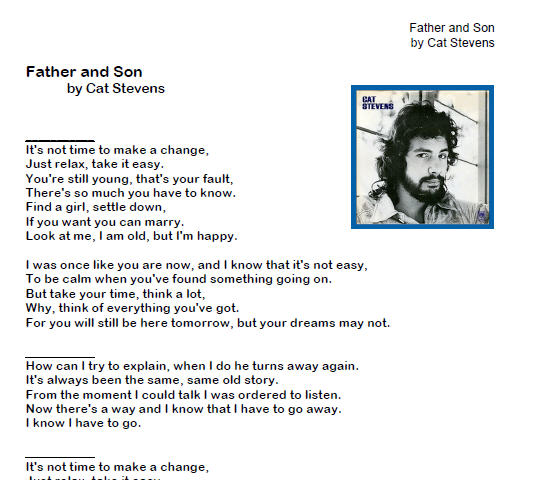

I couldn’t live with the lyrics of the original any more, and, in fact, I had another verse which I never recorded in 1970. What I did play around with was a song called “Longer Boats”. This content can also be viewed on the site it originates from. While the younger Stevens – who now records under the name Yusuf – chose the first option, deeply questioning his fame and lifestyle before largely withdrawing from the world of pop music, at 71 he is settled: he lives in Dubai, where he continues to record music and coordinate a charitable initiative called Peace Train.

Its best-known track, “Father And Son”, takes the form of a conversation between a young man and his father, debating both sides of the age-old question as to whether a person should seek to change the world around them or try to carve out a place within it and live contentedly.

Tillerman was a statement of intent from Stevens, as pertinent today as it was when it came out in 1970, with strong themes of environmentalism, generational divides and personal change and growth in a sense, some of the questions on the album pre-empted Steven’s own search for fulfilment and his subsequent high-profile conversion to Islam in 1977. Of all the politically and socially charged music to arise from the late 1960s, the album that has demonstrated perhaps the most longevity and continued appeal is Cat Stevens’ Tea For The Tillerman.


 0 kommentar(er)
0 kommentar(er)
